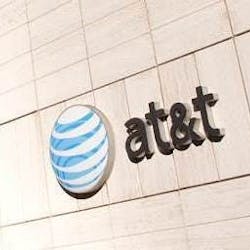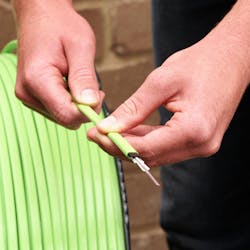C Spire and Entergy Mississippi have completed their $11 million all-fiber infrastructure project in Mississippi that spans more than 300 miles over 15 counties. The final segment of this endeavor involved digging 40 feet under the Ross Barnett Reservoir to connect a 6,585-foot section. The lake is the state’s largest drinking water source.
The result of this fiber expansion is not only the ability for C Spire to provide broadband access to many rural homes and businesses in the state, but also to modernize Entergy’s grid by enhancing the communication systems that connect the utility’s facilities, substations, offices and radio sites. Entergy provides electric service for about 445,000 customers in 45 counties. More than 4,000 homes and over 1,000 businesses are within 500 feet of the fiber-optic lines.
“This project has attracted attention across the nation as we have successfully combined the modernization of the electric grid with the delivery of broadband service to our people,” said Brandon Presley, chairman of the Mississippi Public Service Commission.
C Spire already is connecting customers to the fiber, including a hospital in Prentiss and a band and children’s clinic in Monticello. The company, which launched a fiber-to-the-home (FTTH) initiative in 2013, operates a total of 10,000 route miles of fiber in Mississippi and has recently announced plans to expand into Alabama. Collaborating with Entergy illustrates the type of joint effort that it sometimes takes for rural fiber to make sense, said Alan Jones, SVP engineering and development, C Spire.
“Cost of fiber deployment is a hurdle in many areas. Public-private partnerships are key to bridging the digital divide and getting good quality broadband service in rural areas,” Jones told BTR.
And there are many challenges in addition to cost, Jones said, including scheduling, topography, property access, weather, labor laws, and permitting requirements. This recent Mississippi effort included the need to go under the reservoir because it proved to be the most direct and least expensive route. “While there were several local, state and federal agencies and departments that needed to review and approve permitting, in the end it was the most efficient and effective way to get the job done.”
Unfortunately, there aren’t any new solutions yet that make rural expansion easier or more economic. “The solutions that are coming out often are looking at how to get more capacity in the same area (high count fiber) or in electronics (higher bandwidth) - not necessarily how to lower the cost for rural,” Jones said.
As C Spire begins a fiber expansion in Alabama this year, the company will continue to look for innovative partnerships and approaches. For example, C Spire will utilize a crowd-sourcing model to gauge community interest and guide decisions on investment and deployment.
“This is one way to ensure that we get ultra-fast, high-speed broadband to the communities that want it first,” Jones said.
The Alabama Rural Broadband Coalition, composed of 30 organizations across the state that are focused on rural broadband expansion, welcomed C Spire into its fold last month. The company plans to contract for a portion of Alabama Power’s fiber infrastructure to support its offerings in the metro Birmingham area and other parts of Alabama.





